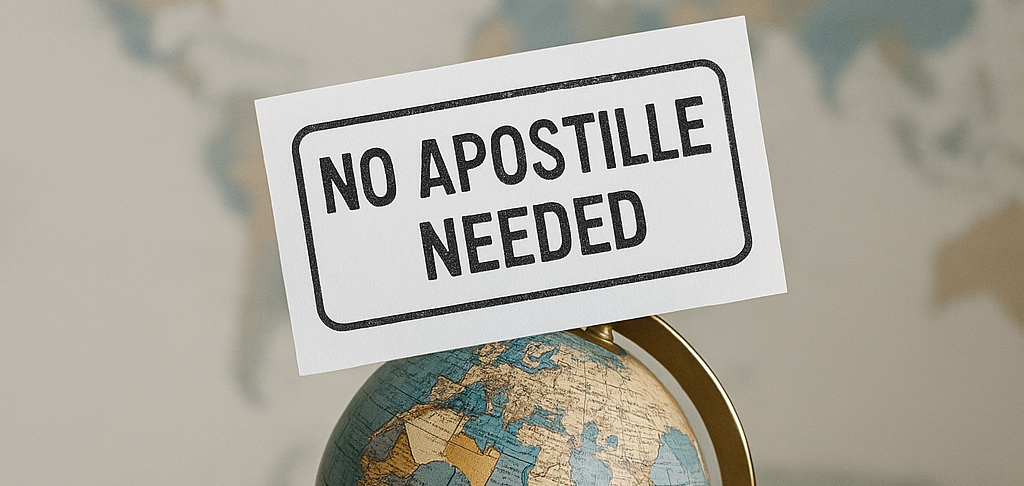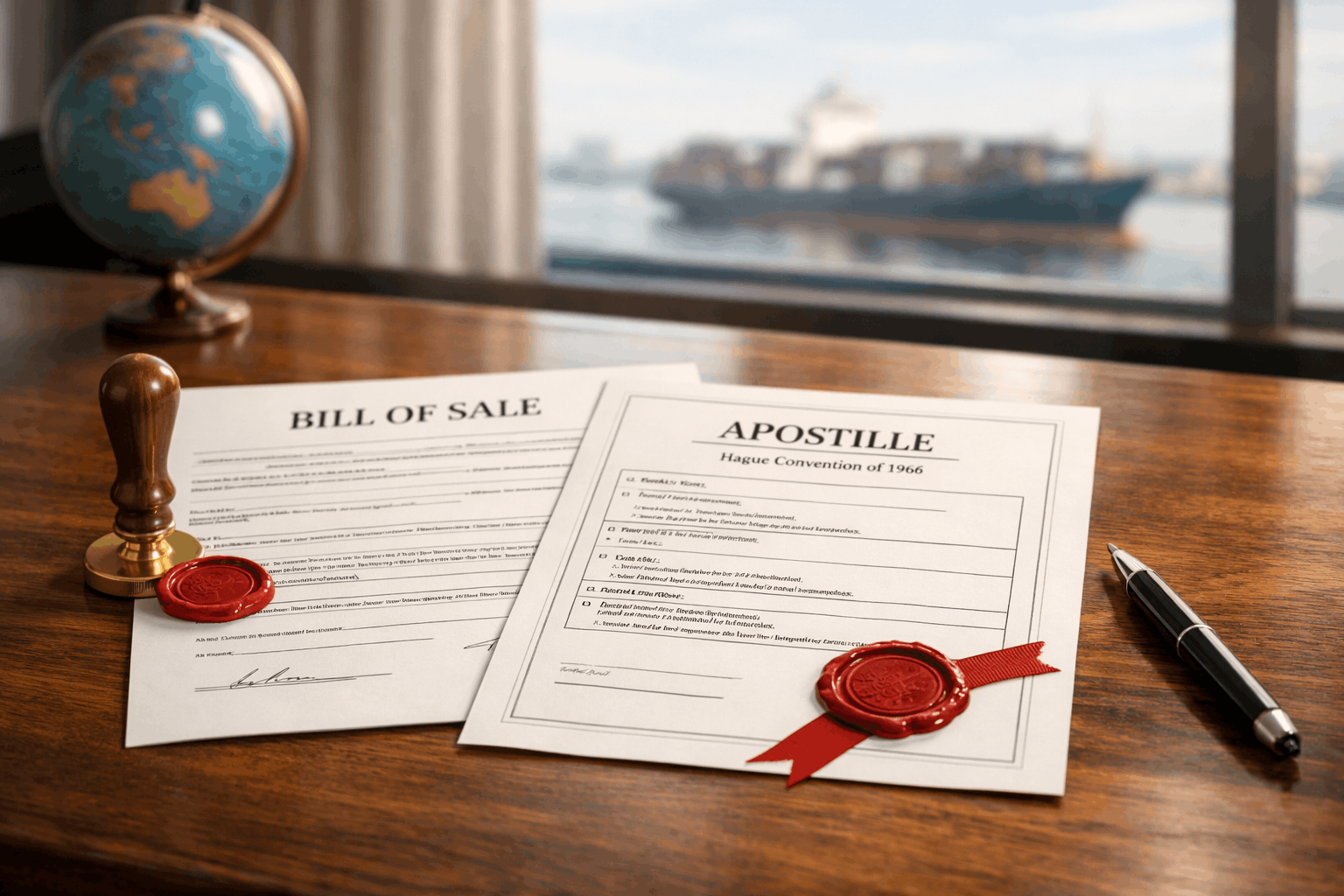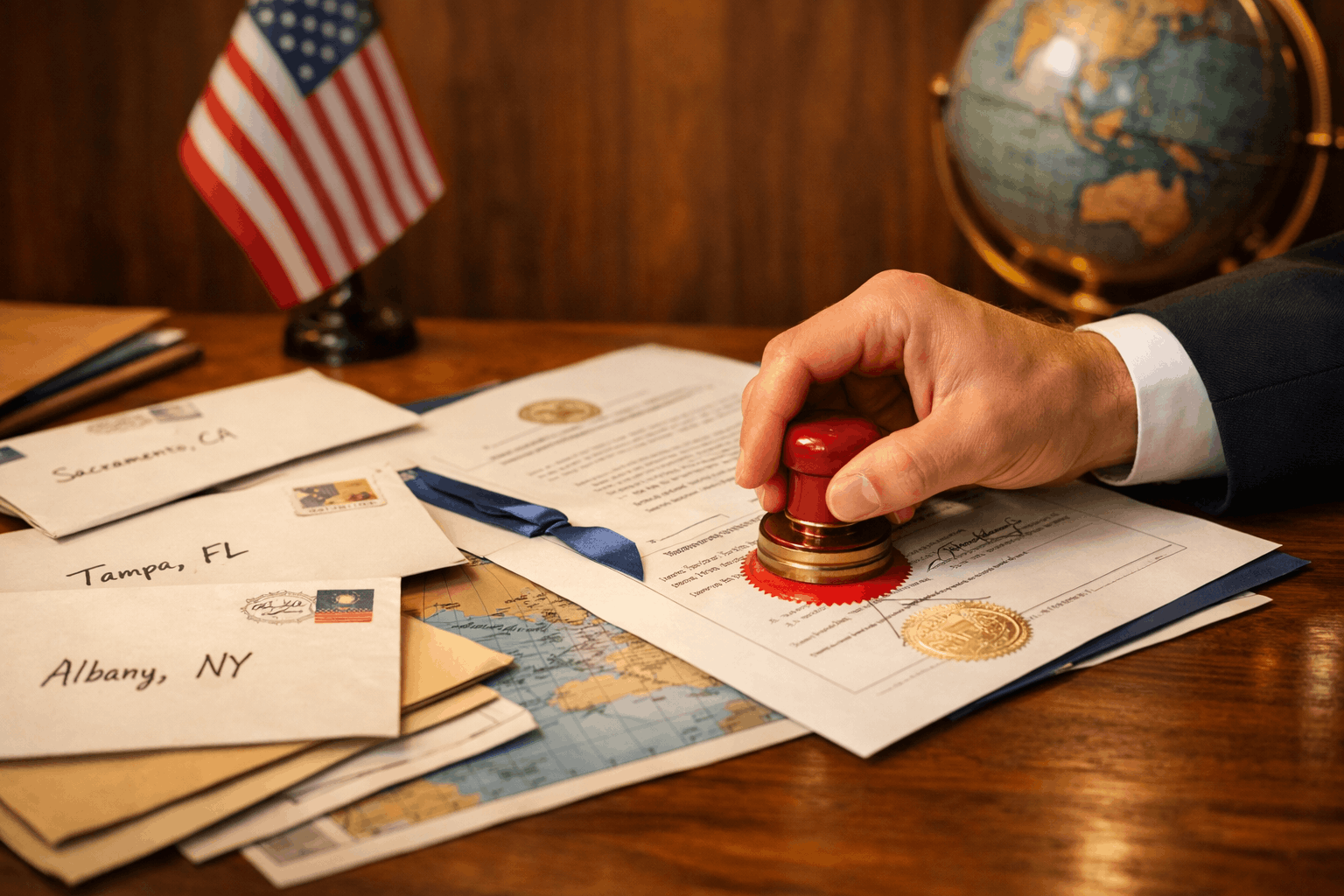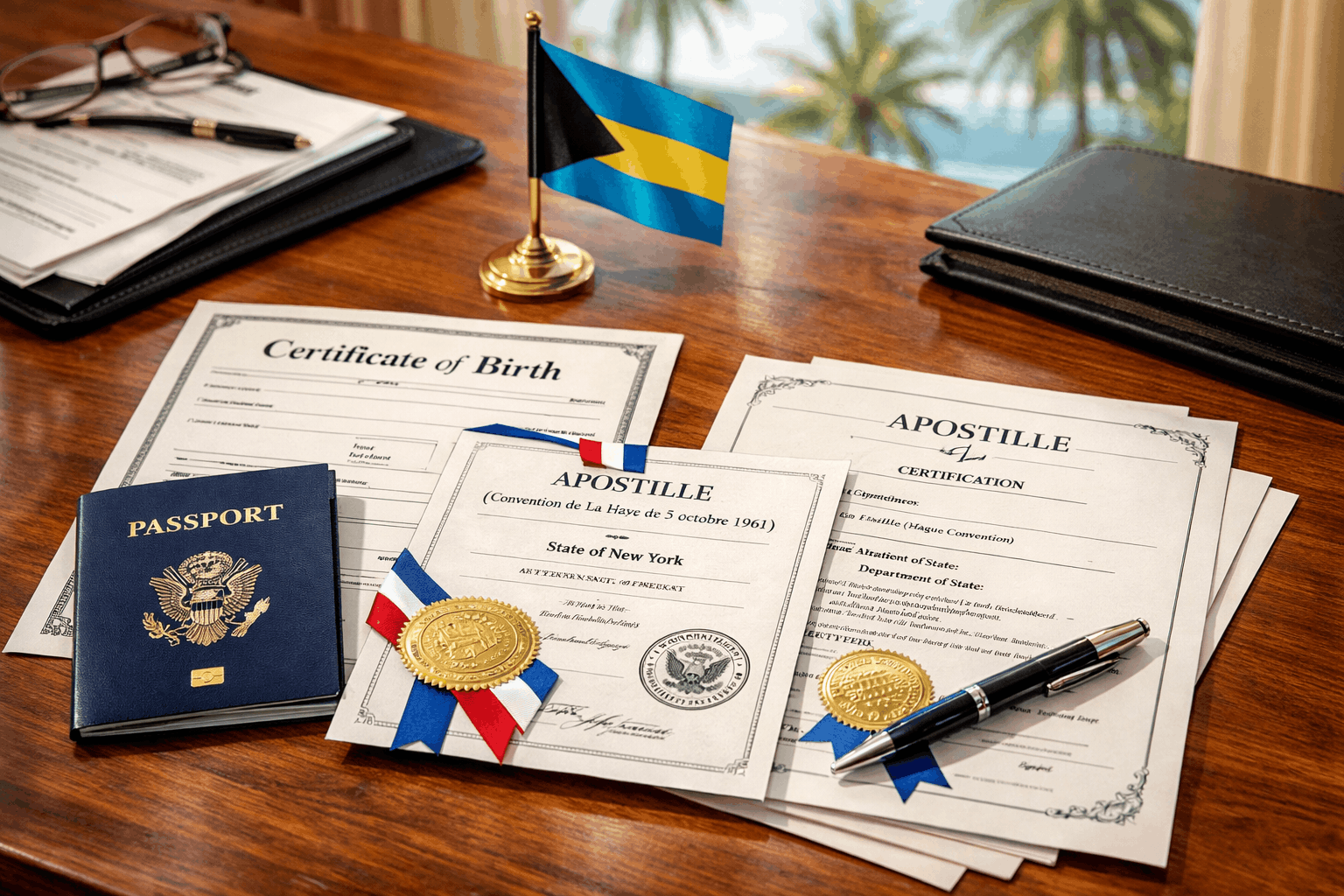
In Which Countries is an Apostille Not Required?
You think all documents must be apostilled before using them in another country? Think again! You might be surprised to learn that many countries don’t require one at all. Knowing the apostille-not-required countries saves you time and investment in the authentication process. This post will share practical insights about countries that don’t need apostille certification and other key exceptions, so you don’t have to take unnecessary steps. Let’s get started!
Using U.S. Documents Without an Apostille: General Exceptions
When you present your U.S. document overseas, not every single situation calls for an apostille. In fact, a lot of places demand a different system, such as non-Hague Convention countries require the legalization method, or certain jurisdictions with close ties with the U.S. don’t even ask for verification. Hence, it’s essential to research apostille exemptions by country to simplify your international paperwork.
Other scenarios involve handling documentation requirements by a U.S. consulate abroad or one of the U.S. territories, including Puerto Rico and Guam. Since they’re under U.S. sovereignty, documents typically don’t need authentication to be accepted. Essentially, it’s worth exploring cases where no apostilles are needed for U.S. documents, which helps eliminate unnecessary bureaucratic procedures. Still confused? Don’t worry — we’ll break them down in the following sections.
Countries That May Not Require an Apostille for U.S. Documents
While the apostille is a must-have in some nations, others carve out specific alternatives to let you use a U.S. document without apostille certification. If you’re searching for an apostille-free countries list, you might be interested in the regional exemptions that we’re about to discuss below.
Canada – Transition from Embassy Legalization
The apostille wasn’t a valid authentication method in Canada before January 2024. Until then, U.S. documents needed to be notarized and authenticated by state or federal agencies, followed by legalization by a Canadian diplomatic mission. Now that Canada has become a member of the Hague Apostille Convention, your document can be authenticated with an apostille instead of consular legalization.
Note that while certain U.S. documents — such as birth certificates or driver’s licenses — may be accepted by some Canadian institutions without an apostille in limited circumstances, this is not guaranteed. Always verify requirements with the receiving authority to avoid delays.
Mexico, Taiwan – Some Institutions Accept Notarized/Certified Documents
Though not entirely apostille-free, countries such as Mexico or Taiwan might accept certain notarized or certified documents from the U.S. without going through full apostille processing. You can benefit from this waiver and catch a break. However, acceptance isn’t universal, so it’s best to verify the requirements carefully with the receiving institution before sending over your document.
U.S. Territories and U.S. Consulates Abroad
Apostilles aren’t needed in U.S. territories and consulates overseas. These places consider domestic documents as-is, so it’s usual to simply submit a certified or notarized copy to such authorities for legal matters. Here’s everything you should know about apostille exemptions and how they reduce your paperwork stress in surprising ways.
No Apostille Needed for U.S. Territories (Puerto Rico, Guam, U.S. Virgin Islands)
Simply put, obtaining an apostille for your documents before sending them to U.S. territories is unnecessary, as they’re legally part of the country. Don’t waste your time running around handling the apostille process without knowing this.
Territories like Puerto Rico and Guam recognize domestic documents without apostilles, meaning you just need to ensure your document is properly certified or notarized. For example, a California birth certificate works in Guam the same way it does in any other state without requiring extra authentication.
U.S. Embassies and Consulates May Accept Notarized Documents Directly
If you are submitting your U.S. documents to a U.S. embassy or consulate abroad for services such as passport applications, Consular Reports of Birth Abroad, or other federal matters, you do not need an apostille or other authentication. These offices treat your records as valid U.S. documents without apostille recognition. However, if your documents will be used by foreign authorities in the country where the consulate is located, you may still need an apostille or legalization.
How to Confirm If Your U.S. Document Needs an Apostille
Don’t leave your international documentation to chance! It’s crucial to verify if your U.S. record needs an apostille or not before sending it anywhere. Since requirements vary widely, it’s advisable to check the receiving country’s Hague Convention status, get clarification from the foreign authority, and consider professional guidance. Let’s go into more details!
Check the Country’s Status in the Hague Apostille Convention
A rule of thumb is that only countries signing the Hague Convention recognize the apostille. Thus, checking if your destination country appears on the Convention country list is an important step. If the country is on the list, an apostille is required for validation. Otherwise, another form of authentication is necessary, depending on specific requirements. Remember that this is just the starting point, so don’t go right into the apostille journey without crossing out the next one.
Ask the Foreign Authority Where the Document Will Be Used
Assuming requirements is a poor move because each institution might have its own rules regarding authentication, whether it’s a university or a government office abroad. To confirm if you need an apostille, inquire with the exact authority where your document will be used for their requirements. For instance:
- International universities may accept official transcripts without apostilles
- Courts require legalization instead for certain legal proceedings
- Immigration offices remove authentication for some document types
Anyway, policies might change by region and authority, so it’s best to always get the latest guidelines directly from the receiving agency.
Consult With an Apostille/Legalization Specialist
When time is of the essence or you’re still unsure if your U.S. document needs an apostille, professional guidance offers the most value for your investment. With international expertise and knowledge in country-specific nuances, experienced apostille providers save you time and hurdles. They will let you know which countries don’t require apostilles, and advise you on other authentication routes.
At EZ Apostille, our team simplifies this process from start to finish. Whether you need an apostille, consular legalization, or simply expert advice, we’re here to help you move forward quickly and securely. From notarization to final certification, we handle the details so you can focus on what matters most — your plans abroad.
FAQs – Apostille Not Required
Is an apostille always required for U.S. documents?
No! Though the apostille is a common authentication method, it’s not always required. Countries outside the Hague Convention demand consular legalization instead, while others, like U.S. territories, don’t ask for authentication at all.
What happens if I use a U.S. document abroad without an apostille when it’s required?
The document will likely get rejected by foreign authorities since they deem it invalid. As a result, you’ll need to restart the authentication process, potentially causing delays in your international plan.
How often do apostille requirements change by country?
It changes periodically, particularly when countries join the Hague Convention. Canada, for example, recently signed the treaty and modified its authentication processes.
Why isn’t an apostille accepted in China or the UAE?
As non-members of the Hague Convention, both countries don’t recognize the simplified apostille process. Therefore, your document must go through the full legalization cycle, starting with notarization and state authentication, followed by consular legalization.
How do I make sure my U.S. document is valid abroad?
Check if the receiving country requires the apostille or legalization, and obtain the proper form of authentication if necessary. Consult professional services if you can’t access information to determine your document’s validity abroad, or in case of time-sensitive and complex legal matters.





